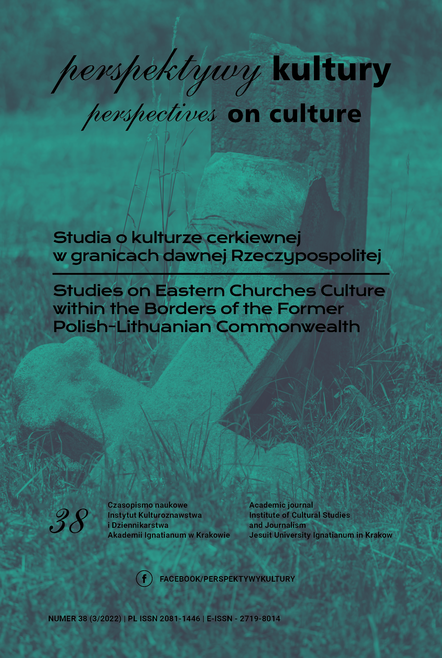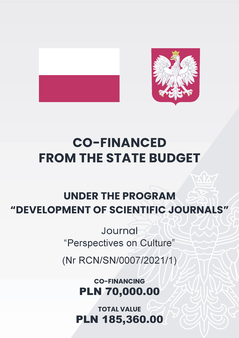Multiculturalism as a Challenge for Contemporary Leadership – an Analysis within the Context of Hotel Management in the 21st Century
Abstract
Building a competitive advantage in the hotel industry today requires the kind of leadership that is open to multiculturalism of both customers and employees. The main goal of the article is to analyze the role and importance of multiculturalism in contemporary leadership and to define the responsibility of leaders in managing employees in a multicultural environment, in the context of 21st century hotel management. The authors prove that the challenges related to multiculturalism (of employees and clients) are very large, while leadership in the conditions of multiculturalism requires special qualities and skills of leaders. In the first part of the article, the authors explain the concept of multiculturalism and the importance of multiculturalism in managing human resources. The next part describes leadership in a multicultural environment. Then, solutions for managing people in modern hotels are presented. Next, the 21st century hotel is presented as a multicultural environment. The last part describes cultural diversity as a challenge for leadership in the context of the hotel industry.
References
Amaram, D.I. (2007). Cultural Diversity. Implications for Workplace Management. Journal of Diversity Management, 2(4), 1–6.
Arasaratnam, L.A. (2013). A review of articles on multiculturalism in 35 years of IJIR. International Journal of Intercultural Relations, 37, 676–685.
Avery, G.C. (2009). Understanding Leadership: Paradigms and Cases. London: Sage Publications Ltd.
Avery, G.C. & Bergsteiner H. (2011). Sustainable Leadership: Honeybee and Locust Approaches. New York: Routledge.
Choi, K.H. & Kim, D.-Y. (2013). A cross cultural study of antecedents on career preparation behavior: Learning motivation, academic achievement, and career decision self-efficacy. Journal of Hospitality, Leisure, Sport & Tourism Education, 13, 19–32.
Cox, T.H. (1993). Cultural Diversity in Organizations: Theory, Research and Practice. San Francisco: Berrett-Koehler Publishers.
Đorđević, B. (2016). Impact of national culture on International Human Resource Management. Economic Themes, 54(2), 281–300.
Gobillot, E. (2006). The Connected Leader: Creating Agile Organizations for People Performance and Profit. London: Kogan Page Ltd.
Grobelna, A. (2015). Intercultural Challenges Facing the Hospitality Industry. Implications for Education and Hospitality Management. Journal of Intercultural Management, 7(3), 101–117.
Hampden-Turner, Ch. & Trompenaars, F. (1997). Riding the Waves of Culture: Understanding Cultural Diversity in Business. London: Nicholas Brealey Publishing.
Hofstede, G. (1980). Culture Consequences. Comparing Values, Behaviors, Institutions and Organizations Across Nations. Beverly Hills: Sage Publications. Hofstede, G., Hofstede, G.J., & Minkow, M. (2010). Cultures and Organizations. Software of the Mind. Intercultural Cooperation and Its Importance for Survival. New York: McGraw Hill.
House, R.J., Hanges, P.J., Mansour, J., Dorfman, P.W., & Gupta, V. (eds.) (2004). Culture, leadership and organizations: The globe study of 66 societies. Thousand Oaks: Sage Publications.
Hu, W.-T., Martin, L., & Yeh, J.-M.R. (2002). Cross-Cultural Impact and Learning Needs for Expatriate Hotel Employees in Taiwan Lodging Industry. Journal of Human Resources in Hospitality & Tourism, 1(3), 31–45. Inglehart, R. (1997). Modernization and Postmodernization. Cultural, Economic and Political Change in 43 Societies. New Jersey: Princeton University Press.
Jankowska-Mihułowicz M. (2011). Kształtowanie organizacji wielokulturowej – strategie behawioralne. Problemy Zarządzania, 9(4), 61–74.
Jenkins, A.K. (2001). Making a career of it? Hospitality students’ future perspectives: an Anglo-Dutch study. International Journal of Contemporary Hospitality Management, 13(1), 13–20.
Kiełbasiewicz-Drozdowska, I. & Radko, S. (2006). The role of intercultural communication in tourism and recreation. Studies in Physical Culture And Tourism, 13(2), 75–85.
Knap-Stefaniuk, A. (2020). Polish and Spanish managers’ views on the role and importance of cultural intelligence in a multicultural work environment. In: K. Soliman (ed.), Sustainable Economic Development and Advancing Education Excellence in the era of Global Pandemic. Proceedings of the 36th International Business Information Management Association (IBIMA). Granada–New York: International Business Information Management Association, 3731–3741.
Knap-Stefaniuk, A. & Burkiewicz, Ł. (2018). Contemporary Leadership in the Context of Multiculturalism – Challenges for Human Resource Management. Scientia et Societas, 14(2), 113–122.
Knap-Stefaniuk, A. & Sowa-Behtane, E. (2020). Challenges of Working in Multicultural Environment From the Perspective of Members of Intercultural Teams. In: K. Soliman (ed.), Education excellence and innovation management: a 2025 Vision to sustain economic development during global challenges. Proceedings of the 35th International Business Information Management Association (IBIMA). Sevilla–New York: International Business Information Management Association, 7325–7336.
Kuc, B.R. (2012). Model nowego przywództwa. In: W. Kowalczewski & Z. Kalisiak (eds.), Ewolucja czy rewolucja? Czas przemian–czas wyzwań. Zarządzanie w procesie permanentnych zmian. Warszawa: Wydawnictwo PRET S.A., 110.
Lee, Ch. & Chon, K.-S. (2000). An investigation of multicultural training practices in the restaurant industry: the training cycle approach. International Journal of Contemporary Hospitality Management, 12(2), 126–134.
Luka, I., Vaidesvarans, S., & Vinklere, D. (2013). Educating Tourism Students for Work in a Multicultural Environment. Journal of Teaching in Travel & Tourism, 13(1), 1–29.
Machaczka, M. (2014). Zjawisko wielokulturowości w przedsiębiorstwach międzynarodowych. Prace Naukowe Uniwersytetu Ekonomicznego we Wrocławiu, nr 359, Wrocław, 188–195.
Ochieng, E.G. & Price, A.D. (2009). Framework for managing multicultural project teams. Engineering, Construction and Architectural Management, 16(6), 527–543.
Peters, B.A. (2008). Managing Diversity in Intergovernmental Organisations. Wiesbaden: VS Verlag für Sozialwissenschaften / GWV Fachverlage GmbH.
Schein, E.H. (2007). Przywództwo a kultura organizacji. In: F. Hesselbein, M. Goldsmith, & R. Beckhard (eds.), Lider przyszłości. Warszawa: Business Press, 89.
Seyman, O.A. (2006). The cultural diversity phenomenon in organisations and different approaches for effective cultural diversity management: a literary review. Cross Cultural Management: An International Journal, 13(4), 296–315.
Pocztowski, A. (2008). Zarządzanie zasobami ludzkimi. Warszawa: PWE, 187. Seymour, D. & Panikkos, C. (2002). University Hospitality Education for International Management: A Case of Wasted Opportunities? Journal of Hospitality, Leisure, Sport and Tourism Education, 1(2), 3–13.
Taylor, M. & McArthur, L. (2009). Cross-Cultural Knowledge, Attitudes and Experiences of Hospitality Management Students. Journal of Hospitality & Tourism Education, 21(4), 614.
Tziora, N., Giovanis, N., & Papacharalabous, C. (2016). The role of foreign languages in hospitality management. International Journal of Language, Translation and Intercultural Communication, 4(1), 89–97.
Weber, K. & Ladkin, A. (2010). Developing Effective Tourism Leadership. Journal of China Tourism Research, 6, 410–427.
West, M.A. (2002). Sparkling Fountains or Stagnant Ponds: An Integrative Model of Creativity and Innovation Implementation in Work Groups. Applied Psychology: An International Review, 51(3), 355–424.
Wolsko, C., Park, B., & Judd, C.M. (2006). Considering the tower of Babel: correlates of assimilation and multiculturalism among ethnic minority and majority groups in the United States. Social Justice Research, 19, 277–306.
Wolvin, A.D. (1994). Communication in the hospitality industry. International Journal of Hospitality Management, 13(3), 195–199.
Copyright (c) 2022 Jesuit University Ignatianum in Krakow

This work is licensed under a Creative Commons Attribution-NoDerivatives 4.0 International License.
Autor, zgłaszając swój artykuł, wyraża zgodę na korzystanie przez Wydawnictwo Uniwersystet Ignatianum z utworu na następujących polach eksploatacji:
- utrwalania utworu w formie papierowej, a także na nośniku cyfrowym lub magnetycznym;
- zwielokrotnienia utworu dowolną techniką, bez ograniczenia ilości wydań i liczby egzemplarzy;
- rozpowszechniania utworu i jego zwielokrotnionych egzemplarzy na jakimkolwiek nośniku, w tym wprowadzenia do obrotu, sprzedaży, użyczenia, najmu;
- wprowadzenia utworu do pamięci komputera;
- rozpowszechniania utworu w sieciach informatycznych, w tym w sieci Internet;
- publicznego wykonania, wystawienia, wyświetlenia, odtworzenia oraz nadawania i reemitowania, a także publicznego udostępniania utworu w taki sposób, aby każdy mógł mieć do niego dostęp w miejscu i czasie przez siebie wybranym.
Wydawca zobowiązuje się szanować osobiste prawa autorskie do utworu.






